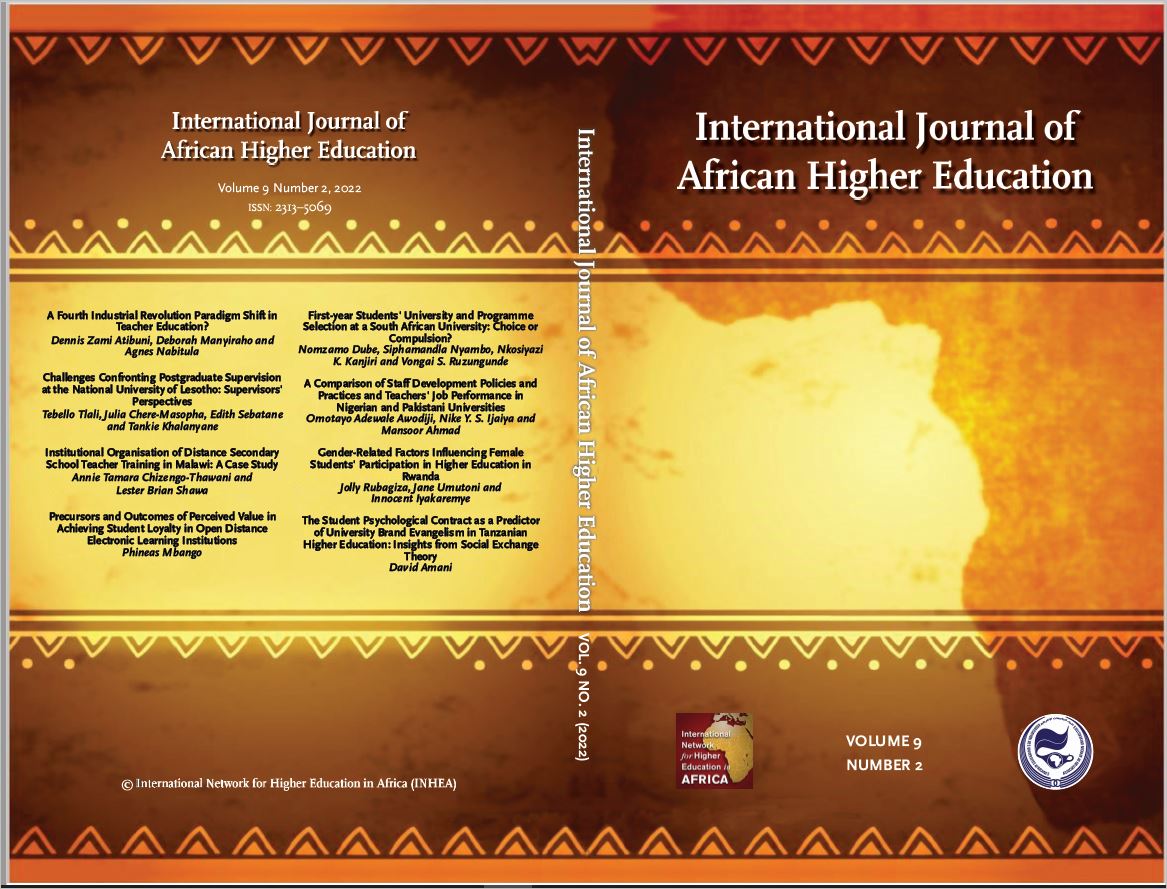A Fourth Industrial Revolution Paradigm Shift in Teacher Education?
DOI:
https://doi.org/10.6017/ijahe.v9i2.15365Abstract
This article explores the plausibility of shifting from the instruction paradigm to the learning paradigm in order to prepare teachers to meet the needs of 21st century learners within the fourth industrial revolution (4IR). While the instruction paradigm is dominated by teacher-centred instructional strategies, a shift to the learning paradigm would require teacher training institutions to prepare teachers who will facilitate the teaching/learning process through interactive strategies, that is, teachers who are ‘meddlers in the middle’, who create puzzling situations and work alongside students to construct knowledge. Key aspects of such a shift include training institutions’ mission and purpose, criteria for the institutional and personal success of teacher trainers and trainees, teaching/learning structures within institutions, learning theory, productivity, funding, and the nature of educational stakeholders’ roles. In line with the dictates of the 4IR, training institutions should cultivate versatility to continuously identify, develop, test, implement, and assess effective learning technologies. In turn, their graduates should value learning as a continuous process for themselves, their learners, and their institutions.
Key words: Fourth industrial revolution, paradigm shift, teacher training, instruction paradigm, learning paradigm
Downloads
Published
How to Cite
Issue
Section
License
Copyright (c) 2022 Dennis Zami Atibuni, Deborah Manyiraho, Agnes Nabitula Nabitula

This work is licensed under a Creative Commons Attribution-NonCommercial-NoDerivatives 4.0 International License.

